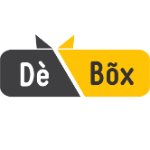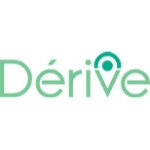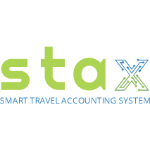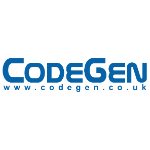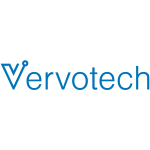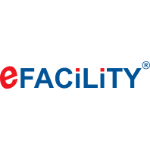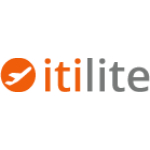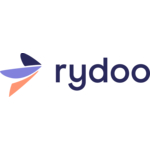TechnologyCounter provides genuine, unbiased real user reviews to help buyers make informed decisions. We may earn a referral fee when you purchase through our links, at no extra cost to you.
List of 15 Best Travel Management Software
Showing 1 - 15 of 44 productsRoutespring is a software that streamlines and optimizes your transportation and logistics operations. Designed to revolutionize the way businesses manage their routes and deliveries, Routespring offers innovative solutions to make your transportatio...Read Routespring Reviews
Swipez Billing is a billing solution for your business needs. Say goodbye to complicated and time-consuming billing processes with Swipez, the user-friendly software designed to streamline your billing operations and increase efficiency. With its sea...Read Swipez Billing Reviews
DeBox TRAVCRM is a solution for managing all your travel bookings, client information, and business operations in one seamless platform. With its user-friendly interface features, DeBox TRAVCRM streamlines tasks and boosts efficiency for travel profe...Read DeBox TRAVCRM Reviews
Derive is a software that revolutionizes the way mathematical equations and expressions are solved. Developed to simplify complex mathematical operations, Derive provides users with accurate, step-by-step solutions and graphing capabilities. With its...Read Derive Reviews
BB Soft is a leading software company that specializes in providing innovative solutions for businesses of all sizes. With years of experience in the industry, BB Soft offers a wide range of reliable is a software products to help streamline and opti...Read BB Soft Reviews
TutterflyCRM is a business management software designed to streamline and enhance your day-to-day operations. From managing customer relationships to organizing sales and marketing efforts, TutterflyCRM provides the tools you need to thrive in todays...Read TutterflyCRM Reviews
WebCRSTravel, your all-in-one solution for hassle-free travel planning. Our innovative and user-friendly software is designed to simplify the process of booking flights, accommodations, and activities for your next adventure. With a wide range of fea...Read WebCRSTravel Reviews
STAX Smart Travel, the ultimate travel management software designed to simplify your journey. With STAX, you can seamlessly plan, book, and organize your travels all in one place. Say goodbye to the hassle of juggling multiple websites and apps, and...Read STAX Smart Travel Reviews
TravelBox DMC is an easy-to-use and highly efficient software solution designed for travel operators. It helps them to effectively manage their resources and streamline their processes. With its wide range of features, this user-friendly interface m...Read TravelBox DMC Reviews
Vervotech is a major developer of Hotel administration Software, with innovative solutions for reservation administration, inventory distribution, and pricing strategies. Their technology uses AI and machine learning to deliver real-time data to hote...Read Vervotech Reviews
eFACiLiTY Smart Facility is a facility management software designed to streamline and automate every aspect of facility management. With its user-friendly interface features, eFACiLiTY makes managing facilities more efficient and hassle-free, empower...Read eFACiLiTY Smart Facility Reviews
ITILITE is a travel management solution for modern businesses. Streamline your travel planning and expense management processes with this user-friendly software, designed to simplify and optimize your entire travel experience. Say goodbye to outdated...Read ITILITE Reviews
Rydoo is more than just a software, its a game-changing solution for all your business travel and expense management needs. With Rydoo, you can modernize your processes, save time and money, and gain full control and visibility over your companys exp...Read Rydoo Reviews
DeBox TRAVCRM is a solution for managing all your travel bookings, client information, and business operations in one seamless platform. With its user-friendly interface features, DeBox TRAVCRM streamlines tasks and boosts efficiency for travel profe...Read DeBox TRAVCRM Reviews
- What Is Travel Management Software?
- Top Reasons Why Businesses Need Travel Management Software?
- What Are the Top Key Features of Travel Management Software?
- What Are the Top Benefits of Travel Management Software?
- What Are the Steps to Choose the Right Travel Management Software?
- What Are the Types of Travel Management Software for Different Industries?
- What Are the Technology Trends for Best Travel Management Software?
- What Are the Deployment Options for Travel Management Software?
What Is Travel Management Software?
Travel management software is a software application specifically developed to streamline and facilitate the process of reserving and overseeing travel-related tasks.
Tour management software enables users to do searches for flights, hotels, and various forms of lodging, make online reservations, maintain pertinent booking details, and oversee additional travel-related responsibilities. The utilization of travel management tools resources extends to other professional engagements such as business travels, vacations, seminars, and events.
A travel management system often encompasses various functionalities, including an online booking module, a spending calculator, and an employee tracking system. One primary advantage of utilizing such a system is the capacity to access and oversee trip information within a unified and centralized platform.
Through the implementation of a centralized system, a company can effectively establish, oversee, and regulate trip alerts and budgetary information, thereby ensuring the accurate monitoring and management of spending. An online travel management system program has the potential to generate cost savings for enterprises through its ability to seamlessly integrate with many systems, including accounting products.
Additionally, the use of a centralized travel management system can yield a reduction in paperwork and enhance the efficiency of administrators in overseeing their employees' travel arrangements. Ultimately, an online travel management system has the capacity to offer a company a considerable degree of transparency and authority in overseeing its travel endeavors.
Top Reasons Why Businesses Need Travel Management Software?
1. Automates tedious administrative processes: The utilization of advanced automation capabilities by travel management software serves to simplify and optimize the process of booking travel arrangements. The implementation of this system results in the elimination of repetitive manual chores and the manual processing of documents.
2. Enhances visibility of travel costs: The travel management tools are designed to monitor and evaluate data in order to generate timely and precise reports on trip expenditures. The system offers an effective mechanism for managing bookings, payments, and several other transactions.
3. Enhances compliance and safety: The utilization of a travel management platform enables firms to effectively monitor and analyze employee travel expenses, hence facilitating the identification of potential policy infractions. Additionally, the program offers users the ability to access emergency assistance and receive notifications regarding credible safety threats.
4. Facilitates collaboration: The aforementioned tour management software promotes cooperation among many parties involved in order to achieve effective administration of the trip procedure. The system has the capability to facilitate the dissemination of comprehensive itinerary information to all relevant stakeholders.
5. Enhances user experience: The travel management tools facilitate the convenient booking and management of travel arrangements for users, including the ability to access these services via mobile devices. An online travel management system facilitates the rapid and efficient comparison and selection of optimal choices.
6. Cost savings: The utilization of a travel management system enables firms to effectively allocate their resources and enhance the overall return on investment for travel-related expenditures. The identification of cost-effective solutions and potential for savings is beneficial.
7. Minimizes time taken to book and manage travel: The online travel management system facilitates efficient booking and management of trips for users. The implementation of this system results in a decrease in the duration required for employees to make travel arrangements and handle their financial transactions.
8. Reduces the hassle associated with booking and managing travel: The program streamlines the procedures involved in reserving and overseeing travel arrangements. The process of collecting and inputting data is streamlined, hence reducing the associated difficulties.
9. Improves communication and coordination: The tour management system facilitates real-time communication among teams, hence streamlining the coordination of activities. This practice aids in mitigating instances of miscommunication and misunderstanding.
10. Personalized customer experience: The tour management software offers a customized and individualized experience for clientele. Tracking consumer preferences and creating a customized experience for them is facilitated by this technology, hence enhancing convenience and customer satisfaction.
11. Consolidates data from multiple sources: The utilization of a travel management platform enables firms to get data from various sources, including travel agents, airlines, hotels, and other relevant entities.
12. Simplifies reporting: The tour management system enables firms to efficiently produce precise and comprehensive reports in a timely manner. The implementation of this technology obviates the necessity for human data input and enhances the precision of the process.
13. Maintains records securely: The best travel management software facilitates the secure storage and maintenance of records for businesses. This facilitates firms in adhering to relevant rules and regulations.
14. Offers proactive insights and guidance: The travel management systems offer instantaneous data and analysis to assist enterprises in gaining a deeper comprehension of their travel requirements. This facilitates the ability to strategically plan more effective journeys and proactively address any travel-related concerns.
15. Enhances security: The tour management system provides robust encryption capabilities to ensure the security and protection of client and corporate data. Additionally, it offers the capability to view security logs and data, enabling businesses to monitor and detect any instances of fraudulent or suspicious actions.
What Are the Top Key Features of Travel Management Software?
The top key features of travel management software include:
1. Automated Trip Planning: The utilization of automated travel planning systems facilitates the efficient organization of intricate itineraries. The system offers automated services for tickets and airline reservations, hotel reservations, and itinerary planning.
2. Automated Expense Reports: Automated expense reports facilitate the process of monitoring, aligning, and documenting all expenditures related to corporate travel.
3. Travel Booking: The process of travel booking facilitates the reservation of flights, accommodations, and car rentals at the most favorable prices available.
4. Travel Budgeting: The practice of travel budgeting facilitates the development of individualized budgets for each traveler, enabling the centralized management and monitoring of all incurred expenses.
5. Invoice Management: The process of invoice management facilitates the reconciliation of bills, vendor payments, and the tracking of mileage.
6. Risk Management: Risk management plays a crucial role in the identification and mitigation of any risks that may arise throughout the course of travel.
7. Data Security: Tour management software plays a crucial role in safeguarding the confidentiality and integrity of user and customer data security, as well as ensuring the establishment of robust authorization mechanisms.
8. Mobile Apps: Mobile applications offer users the ability to access tour management system capabilities in real-time, even while they are away from their primary location.
9. API Integrations: API integrations facilitate the seamless integration of various travel-related APIs, including payment gateways and visa processing services.
10. Reporting and Analytics: The utilization of reporting and analytics facilitates the generation of comprehensive reports and the monitoring of essential performance measures.
What Are the Top Benefits of Travel Management Software?
The top benefits of travel management software include:
1. Cost optimization: The utilization of travel management software enables managers to effectively optimize budgets and expenses via the facilitation of meticulous tracking of their travel activities. Additionally, travel management systems can aid in the identification of chances to reduce costs associated with air travel, accommodations, and other relevant expenditures.
2. Automation and efficiency: Automated procedures and features have the capacity to diminish the need for manual labor and time investment in the planning and booking of travel, hence enhancing efficiency and cost-effectiveness.
3. Improved security: The tour management system facilitates the secure and instantaneous uploading and monitoring of data, thereby safeguarding the well-being of travelers, mitigating the potential for fraudulent activities, and offering convenient access to current contact details for any necessary assistance.
4. Increased visibility: The utilization of tour management software enables managers and staff to enhance their ability to monitor and track expenses associated with travel, hence facilitating a more comprehensive understanding of business expenditures.
5. Improved communication and collaboration: Travel management software facilitates efficient and safe information sharing between managers and travelers, hence enhancing collaboration among team members during travel engagements.
6. Improved compliance: Policy and compliance management can be readily customized to facilitate adherence to business travel policy and government requirements.
7. Enhanced customer service: The utilization of travel management software enables clients to efficiently and expeditiously retrieve their travel information, hence facilitating more streamlined customer care engagements.
What Are the Steps to Choose the Right Travel Management Software?
1. Identify the requirements – It is essential to comprehend the specific nature of the requirements and afterwards assign priority to them. Several inquiries that can be posed include:
• What is the purpose of the software?
• Will the software integrate with other systems?
• Does the software allow for real-time tracking of trips and expenses?
• Does the software have an analytics and reporting component?
• What type of customer service do they offer?
2. Research potential software – After the identification of the criteria, it is advisable to conduct research on potential software options. Incorporate industry reviews, consumer comments, and vendor capabilities into your evaluation methodology.
3. Review budget – Kindly assess the projected financial strategy pertaining to the acquisition and integration of the software. To determine the feasibility of meeting all requirements, it is imperative to assess the congruence between desired attributes and functionalities, and the constraints imposed by budgetary considerations.
4. Demo the software – Please arrange a demonstration with prospective vendors in order to assess the software's compatibility with your business and ascertain its ability to fulfill all the specified requirements. In order to evaluate the vendor's skills, what questions might be asked?
5. Finalize the decision – In order to arrive at a choice, it is necessary to consider many factors such as the roadmap, feature set, user experience, training, customer service, and cost.
What Are the Types of Travel Management Software for Different Industries?
The types of travel management software for different industries vary greatly.
Generally they fall into four main categories:
1. Corporate Travel Management Software: This software facilitates the coordination of corporate travel arrangements for employees and streamlines the management of associated expenses.
Common components seen in this context frequently encompass functionalities such as reservation systems, financial monitoring, budget allocation, risk assessment and mitigation, itinerary generation, and adherence to established policies.
2. Hospitality Travel Software: This software application assists hotel owners and managers in various operational tasks, including but not limited to managing hotel reservations, handling guest arrivals and departures, allocating rooms, managing cleaning operations, and performing more functions.
The system generally retains consumer information and facilitates integration with online travel agents (OTAs) such as Booking.com, Expedia, and TripAdvisor.
3. Leisure Travel Software: This particular program facilitates the process of itinerary creation and trip administration for individuals engaged in travel activities.
Typically, it provides functionalities such as reservation systems, travel advisories, location exploration, event coordination, itinerary organization, and additional capabilities.
4. Airline Travel Management Software: This particular software is specifically developed for the purpose of aiding airlines in the management of many operational aspects, such as scheduling, aircraft availability, crew scheduling, flight plans, and other related functions.
Common components of this system frequently encompass functionalities such as gate administration, cargo monitoring, ticket reservation, maintenance management, and route optimization.
What Are the Technology Trends for Best Travel Management Software?
The technology trends for best travel management software are varied and cover a broad range of areas.
Areas of technology used in travel management software includes:
1. Mobile Applications: The utilization of travel management tools, coupled with mobile applications, enables clients to engage in the process of booking trips, effectively manage bookings, and conveniently receive real-time updates while being mobile.
2. Automation: The integration of automation plays a crucial role in optimizing operational workflows within the best travel management software, hence augmenting the overall quality of client interactions.
Automation encompasses several functionalities such as the generation of travel plans, the production of automated schedules, and the implementation of automated payment systems.
3. AI and Machine Learning: Artificial Intelligence (AI) and machine learning algorithms possess the capability to render judgements of heightened accuracy, hence resulting in time and cost savings for enterprises.
Artificial intelligence (AI) and machine learning (ML) algorithms have the potential to enhance the precision and personalization of suggestions, optimize routes, and generate cost efficiencies.
4. Automated Compliance: Automated compliance is an essential attribute embedded in travel management tools, facilitating organizations to uphold adherence to pertinent norms and legislation.
Automated compliance software has the potential to assist firms in maintaining adherence to data protection regulations and other compliance obligations.
5. Data Security: In order to safeguard the privacy of consumers, it is imperative for travel management systems to adhere to stringent security protocols.
The implementation of robust data security measures is of paramount importance for organizations seeking to safeguard consumer data and mitigate the risk of unauthorized intrusion.
6. Cloud-based Solutions: Cloud-based solutions have gained significant popularity among numerous enterprises. This solution enables users to access apps, data, and services from any device, while also offering enhanced security compared to an on-premise system.
What Are the Deployment Options for Travel Management Software?
1. Cloud-Based Deployment: The phenomenon being referred to is the hosting and distribution of Travel Management Software via the internet. This feature enables users to conveniently access the software via their web browser from any location with an internet connection.
2. On-Premises Deployment: The installation of the Travel Management Software occurs on a server located at the company's facilities. This practice is typically employed when organizations possess enhanced authority in managing security measures and safeguarding data privacy.
3. Hybrid Deployment: This represents a synthesis of the aforementioned alternatives. Organizations have the option to allocate certain data to be stored in cloud-based systems, while retaining the remainder on their physical premises. This configuration offers firms the advantages of both travel management tools and data security.


